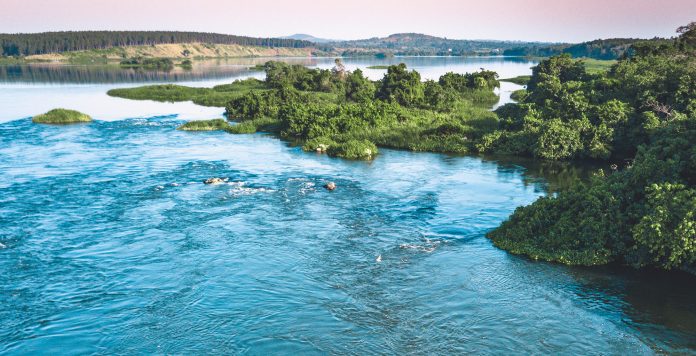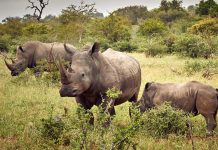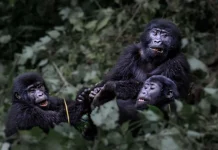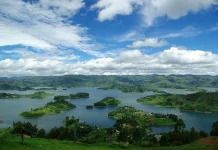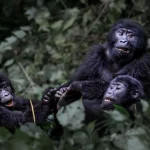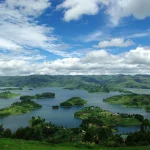Lake Victoria also known as Victoria Nyanza is the largest lake in Africa and second largest freshwater lake in the world. The lake is located between Uganda, Kenya and Tanzania and covers an area of 68800 sq km with the Uganda part covering 45%. The coastline runs 2000 miles around three countries. Lake Victoria was named after Queen Victoria by the British explorer John Speke. However that lake was discovered way back by the locals who left no written records before it was sighted by the Europeans in 1858. According to Speke’s findings it is claimed that lake Victoria is the source of river Nile. Lake Victoria contains about 1000 archipelago islands including the 84 of Ssese islands. These range from tiny spits of land to larger inhabited islets. Each inhabited island has its own character, customs and history for instance the Mfangano island has the ancient rock painting made by the Batwa people. Apart from islands the lake harbors a variety of wildlife animals.
Wildlife in Lake Victoria
Lake Victoria has a number of mammal species and some of these include; hippopotamus, crocodiles, wildebeest, elephant, buffaloes, giant otter shrew, chimpanzees and marsh mongoose. However these mammal species appear in low numbers. The lake also supports a number of bird species. It also contains reptiles such as Nile crocodile, crustaceans, African helmeted turtle, and four species of freshwater crab. Lake Victoria is also a home to about 200 fish species and haplochromine cichlid. However, most of these species went extinct and the number has reduced to 80%.
Tourist attractions on lake Victoria
Ngamba island
The island is loathed 27 kilometers southeast of Entebbe town and it is one of popular islands on lake Victoria. Ngamba island chimpanzee sanctuary is a home to 50 chimpanzees which were rescued across East Africa. The sanctuary is managed by the chimpanzee trust, an NGO that aims to sustainably protect chimpanzees and offer care for chimps which cannot survive in the wild. At Ngamba visitors can decide to have half day or full day trips to explore the area.
Mabamba swamp
The swamp is located north of lake Victoria and it is a home to 300 birds including the shoebill stork. Visitors who go for birding in Mabamba swamp always use canoes to access where they are. They are always accompanied by the local guide who shares the information about the place and the shoebills. In the morning there are always high chances of spotting these birds. Other bird species that can be spotted include the African marsh harrier.
Ssese islands
The Ssese islands is a group of 84 islands characterized by sandy beaches and sapphire water located in the north of lake Victoria. Among these islands, Bulago island is the most developed with a number of good hotels and beaches. Bulago island offers a number of tourist activities for instance; quad biking, birding, fishing among others. For Banda island is remote however simple and beautiful with a good environment for mediation walks.
Botanical gardens
The gardens are located on the northern shores of lake Victoria. Botanical gardens are known for collections of plant species indigenous and exotic. These plant species include sub tropical, temperate zones, tropical, and several shrubs. Some of these plants are known for medical value. The botanical gardens harbors mammal species like colobus monkeys and bird species like African grey parrot, palm nut vulture and whilst bat hawk that are often seen in the gardens during sunset.
